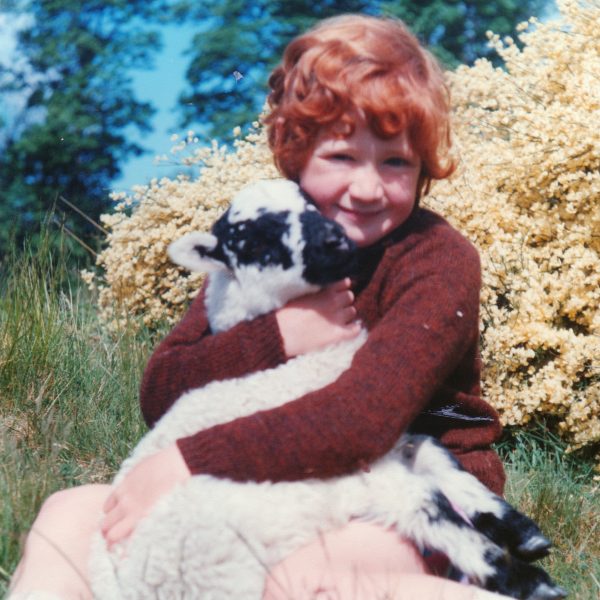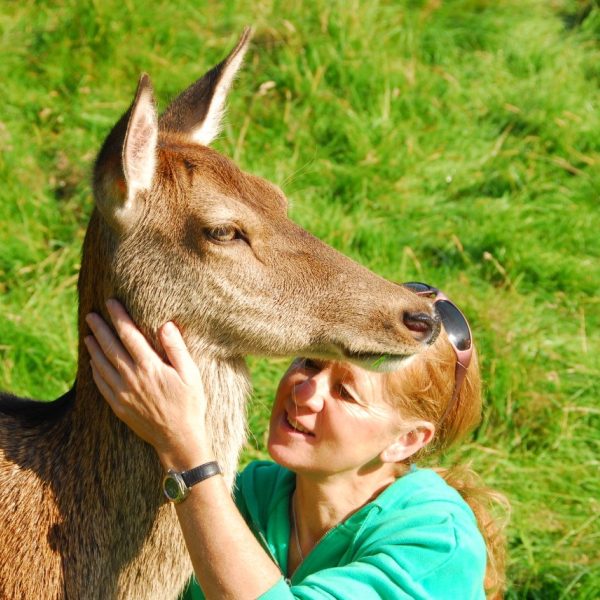The Horizontal Oak
Polly Pullar


Polly Pullar is a much-loved and respected author and journalist, with a deep love for the wildlife and countryside of Scotland. Her latest book, The Horizontal Oak, follows a different path to her previous nine nature journals and tales of the Scottish countryside. This time, Pullar is telling her own story, of her upbringing in a remote corner of the Highlands. We asked her to tell us a little about the book and its origins.
Being human isn’t always easy. When you are a writer and have a new book, one of the questions you are asked is ‘what are you going to write next?’ There is seldom thought that perhaps you might need a breather from the endless effort that all writers would agree goes into production. You are expected to continue. When you reply that you are writing a memoir, someone will comment, ‘that’s brave.’ And then you doubt whether writing it is right. Next you are asked, ‘why?’ This is a harder question to answer.
The American editor, Shawn Coyne, wrote, ‘Whether you know it or not, your desire to write stems not only from the urge to create, it’s a need, one every human being on earth has, to help others. A well-told story is a gift to the reader, listener or viewer, because it teaches to confront their own discomforts.’
I had a perfect childhood immersed in the natural world. Animals and wild things surrounded me in the glorious places where we lived. In Ardnamurchan, I had unfettered freedom. This wild, wind-honed peninsula fringed with Atlantic oak woodland, lush with wildlife, became my rock when I found myself confronting family turmoil. Ardnamurchan taught me the vital importance of emotional ballast.
Many ordinary families like mine face challenging problems and issues. It’s part of the human condition, but it’s how we handle them that matters. High on an Ardnamurchan hillside is an oak tree that has been beaten into submission by the wrath of the Atlantic. It is horizontal. Yet it clings strongly to life. It is the finest place I know to sit and banish mental bedlam. Its tenacity is inspiring.
There have been a rash of books that fall into the ‘nature healed me’ category. I didn’t want mine to fall into this mould. I wanted to weave my passion for the natural world around the story of the difficult relationship I had with my parents, about my father’s alcoholism and his subsequent suicide, and include a family secret that consumed me. I wanted to write about a life enhanced by close relationships with animals, and the solace that this brought, punctuating it throughout with humour. For even in the darker moments, humour can save us.
As more people struggle with melancholy, angst and uncertainty, I wanted to relate anecdotes of the wonderful situations that have carried me, hopefully to help others to confront their own discomforts. Our disconnection from nature is a worrying trend, yet absorption of the natural world away from the inevitable stresses and tragedies of life, can be more mentally grounding than anything.
My parents were both flamboyant and flawed, and I loved them. However, like their parents before, they dealt with situations that were not of their making – we are all the same. I don’t blame them for the things that went wrong, it just took years to understand. The past is hard to dislodge, but revisiting it brings a chance to reassess and view it from a better angle.
In the words of the late Terry Pratchett, ‘If you don't turn your life into a story, you just become part of someone else’s story.'